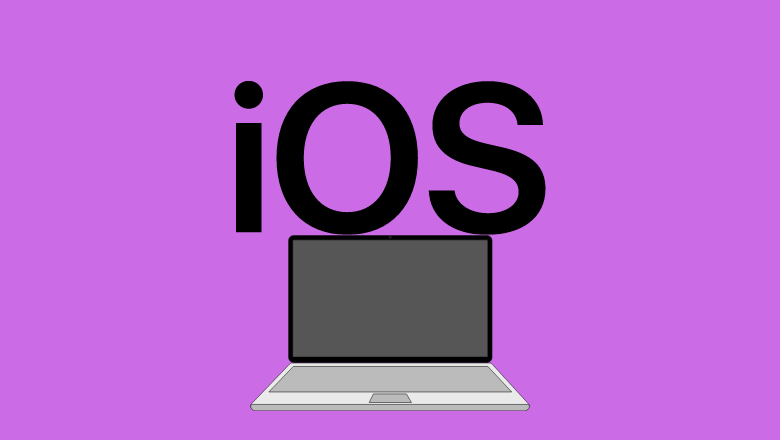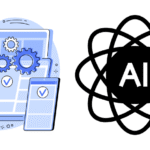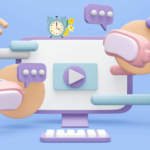
How to Prepare for a Junior iOS Developer Interview: Discover the secret sauce to acing the interview and kick starting your iOS development career with our expert tips and tricks!
Preparing for a junior iOS developer interview can be daunting, but fear not! I’m here to provide a step-by-step guide on how to ace that interview and launch your career in iOS development.
Step 1: Master the Basics
Key Takeaway: Know your fundamentals inside and out.
To stand out in an interview, you need a strong foundation in iOS development. Start by learning Swift, the programming language used for iOS apps. Get familiar with Xcode, Apple’s integrated development environment, and study Interface Builder for designing user interfaces.
Exemplify: Read Apple’s official Swift documentation and complete tutorials on raywenderlich.com.
Pro Tip: Use online resources like Hacking with Swift and Swift Playgrounds to improve your skills.
Pros: A solid foundation makes you more confident in the interview.
Cons: It takes time and effort to learn the basics.
Stats: According to Stack Overflow’s 2021 Developer Survey, 53.8% of professional developers use Swift.
Metaphor: Learning the basics is like building a strong foundation for a house; without it, the structure won’t stand.
Step 2: Work on Personal Projects
Key Takeaway: Showcase your skills with a portfolio of projects.
Create a few personal projects to demonstrate your abilities and gain practical experience. These projects should highlight your understanding of app architecture, UI/UX design, and coding best practices.
Exemplify: Develop a weather app that fetches data from an API, displays it in a user-friendly manner, and allows users to save their favorite locations.
Pro Tip: Use GitHub to host your code and showcase your version control skills.
Pros: Personal projects provide real-world experience and help build your portfolio.
Cons: It can be challenging to find the motivation to work on personal projects.
Stats: According to a HackerRank Developer Skills Report, 84% of hiring managers prioritize problem-solving skills over qualifications.
Metaphor: Personal projects are like a painter’s portfolio, showcasing their talent and creativity to potential clients.
Step 3: Study Common iOS Interview Topics
Key Takeaway: Know what to expect in the interview.
Research common iOS interview topics to better prepare for the technical portion of the interview. Some topics to focus on include:
- Swift language features
- Memory management and ARC
- App architecture (MVC, MVVM, VIPER)
- Design patterns
- Auto Layout and constraints
- Networking and RESTful APIs
- Core Data and persistence
- Unit testing and TDD
Exemplify: Study Apple’s documentation on Auto Layout and practice implementing it in your projects.
Pro Tip: Use resources like iOS Interview Questions by Alex Bush and raywenderlich.com’s iOS interview guide.
Pros: Being familiar with common interview topics increases your confidence and reduces anxiety.
Cons: It may be overwhelming to cover all topics thoroughly.
Stats: According to a 2020 study, 47% of job seekers found interviews to be the most challenging part of the job search process.
Metaphor: Studying common interview topics is like training for a marathon; you need to know the route to perform well on race day.
Step 4: Practice Coding Challenges
Key Takeaway: Hone your problem-solving skills through coding challenges.
Many interviews include live coding exercises or whiteboard challenges. Practice your problem-solving skills by using platforms like LeetCode,
HackerRank, and CodeSignal. These websites offer a wide range of coding problems tailored for various skill levels and interview preparation.
Exemplify: Solve problems related to data structures, algorithms, and iOS-specific questions.
Pro Tip: Set aside dedicated time each day to practice coding challenges, and review your solutions to learn from your mistakes.
Pros: Regular practice improves your problem-solving skills and helps you stay calm during the interview.
Cons: Balancing coding practice with other interview preparation tasks can be challenging.
Stats: A study by HackerRank found that 94% of developers learn new coding languages through online resources.
Metaphor: Practicing coding challenges is like training for a sport; consistent practice helps you improve your performance and develop muscle memory.
Step 5: Network with Other iOS Developers
Key Takeaway: Connect with other developers to learn and grow together.
Networking is crucial for professional growth and can also provide valuable insights into the interview process. Join online forums, attend meetups, and engage with developer communities on platforms like Twitter and LinkedIn.
Exemplify: Participate in online discussions on the Swift Forums, attend local iOS developer meetups, and follow influential developers on social media.
Pro Tip: Don’t be afraid to ask questions and share your experiences with others. Collaboration can lead to valuable insights and new opportunities.
Pros: Networking helps you stay up-to-date with industry trends, learn from others’ experiences, and potentially discover job opportunities.
Cons: Building a network takes time and effort.
Stats: According to a LinkedIn survey, 85% of jobs are filled through networking.
Metaphor: Networking is like watering a garden; with consistent effort, your connections will grow and flourish.
Step 6: Prepare for Behavioral Questions
Key Takeaway: Showcase your soft skills and cultural fit during the interview.
In addition to technical questions, interviews often include behavioral questions to assess your soft skills and how well you’d fit within the company culture. Be ready to discuss your experiences working in teams, handling conflicts, and overcoming challenges.
Exemplify: Prepare a few stories that demonstrate your adaptability, problem-solving abilities, and teamwork skills.
Pro Tip: Use the STAR method (Situation, Task, Action, Result) to structure your responses to behavioral questions.
Pros: Well-prepared answers to behavioral questions can help you stand out from other candidates.
Cons: It can be difficult to recall specific situations under pressure.
Stats: A survey by CareerBuilder found that 77% of employers believe soft skills are just as important as hard skills.
Metaphor: Answering behavioral questions is like painting a picture of your character for the interviewer to see.
Step 7: Practice Mock Interviews
Key Takeaway: Simulate the interview experience to build confidence and reduce anxiety.
Conduct mock interviews with friends, family, or online resources like Pramp to simulate the interview experience. This practice helps you refine your answers, improve your communication skills, and identify areas for improvement.
Exemplify: Ask a friend to conduct a mock interview, focusing on both technical and behavioral questions.
Pro Tip: Record your mock interviews to review your performance and identify areas for improvement.
Pros: Mock interviews help you become more comfortable with the interview process and reduce anxiety.
Cons: It can be challenging to find a suitable mock interview partner.
Stats: According to a survey by Talent Board, 62% of job candidates found mock interviews helpful in their job search.
Metaphor: Practicing mock interviews is like rehearsing for a play; the more you practice, the better
your performance on the big day.
Step 8: Research the Company
Key Takeaway: Understand the company’s mission, values, and culture to demonstrate your interest and commitment.
Before the interview, research the company’s background, their products or services, and the team you’ll be working with. This knowledge helps you tailor your answers and shows your genuine interest in the company.
Exemplify: Review the company’s website, blog, social media, and any recent news articles to learn about their achievements, goals, and challenges.
Pro Tip: Use sites like Glassdoor and LinkedIn to gather insights about the company’s culture and interview process.
Pros: Researching the company helps you make a strong impression and highlights your dedication.
Cons: It can be time-consuming to gather extensive information about each company.
Stats: According to a study by Ladders, 75% of interviewers say that candidates who’ve researched the company are more likely to succeed in the interview process.
Metaphor: Researching a company is like studying a map before embarking on a journey; it helps you navigate unfamiliar territory and reach your destination.
Step 9: Prepare Questions for the Interviewer
Key Takeaway: Asking insightful questions demonstrates your enthusiasm and critical thinking.
At the end of the interview, you’ll likely have an opportunity to ask the interviewer questions. Prepare a list of thoughtful, open-ended questions to show your interest in the company and the role.
Exemplify: Ask about the team’s development process, the company’s growth plans, or the challenges they’re currently facing in the industry.
Pro Tip: Avoid asking questions that can be easily answered with a quick online search.
Pros: Asking questions shows your engagement and enthusiasm for the role.
Cons: It can be challenging to come up with unique, insightful questions for each interview.
Stats: A survey by Robert Half found that 84% of senior managers consider a candidate’s questions when evaluating them.
Metaphor: Asking questions during an interview is like unlocking hidden doors, revealing more about the company and your potential role within it.
Step 10: Reflect and Learn from Each Experience
Key Takeaway: Use each interview as a learning opportunity to improve your skills and confidence.
After each interview, take the time to reflect on your performance. Identify what went well, areas for improvement, and any surprising questions or topics that came up. Use this feedback to refine your approach and better prepare for future interviews.
Exemplify: After an interview, jot down the questions you were asked and your responses, then review them to identify areas for improvement.
Pro Tip: Don’t dwell on unsuccessful interviews; instead, focus on the lessons learned and apply them to your next opportunity.
Pros: Reflecting on your experiences helps you grow and become a stronger candidate.
Cons: It can be discouraging to face rejection or criticism.
Stats: A study by Harvard Business Review found that reflection improves learning and performance by 20-25%.
Metaphor: Reflecting on your interview experiences is like polishing a rough gemstone; each iteration makes you shine brighter.
Wrapping about how to prepare for a Junior iOS Developer Interview
By following these ten steps, you’ll be well-prepared for your junior iOS developer interview. Keep practicing, stay curious, and believe in yourself. Your dream job is just around the corner!
Charlotte Williams is a talented technical author specializing in cross-platform app development. With a diverse professional background, she has gained valuable experience at renowned companies such as Alibaba and Accenture. Charlotte’s journey in the tech industry began as a mobile UX designer back in 2007, allowing her to develop a keen understanding of user-centric app design.
Proficient in utilizing frameworks like React Native and Flutter, Charlotte excels in building cross-platform mobile apps and imparting her knowledge to aspiring developers. She pursued a degree in Computer Science at Cornell University, equipping her with a strong foundation in the field. Residing in San Francisco with her three beloved dogs, she finds solace in hiking the hills and connecting with nature. Charlotte’s passion for app development, combined with her dedication to sharing expertise, makes her an invaluable resource in the world of cross-platform app development.







